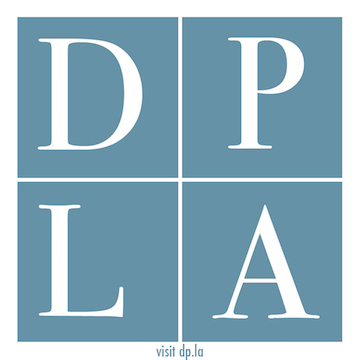by Laura Jones, UW-Milwaukee SOIS
My name is Laura Jones, and as a budding Library and Information Science graduate student at the University of Wisconsin-Milwaukee, I was itching to get my hands on some materials in order to practice the skills and theories I’ve learned throughout my coursework. After the cancellation of several summer internships and study abroad programs due to Covid-19, I thought it impossible to snag an elusive remote internship or volunteer position before the Fall semester started. Lucky for me, my program advisors sent out a volunteer notice for Recollection Wisconsin’s Listening to War project. This summer, I created metadata and wrote summaries for oral history interviews included in this project.
Going into the project, I thought I was going to hear the types of depressing and shocking tales my grandfather used to tell me about the Korean War when I was a child. While not every interview I’ve listened to has been bright and cheery, I’ve come across a surprising number of fascinating, encouraging and relevant interviews. Two stories stood out to me, those of Agnes Barland McDaniel and Reverend Armin Heidmann.
McDaniel was recruited as an emergency nurse during the 1918 flu pandemic. After receiving her initial training at Vassar Training Camp for Nurses in 1918, she worked at the John Hopkins School of Medicine and assisted those infected in the pandemic as well as soldiers recovering from World War I. Listening to her interview, recorded by the Chippewa Valley Museum in 1975, left me with burning questions about the 1918 flu pandemic, and motivated me to do a little side research. I was surprised by the similarities between that pandemic and our current situation, dealing with Covid-19. It is almost as though we have forgotten our past and relived it. This realization reinforced for me the importance of knowing our history. Not just the short and commonly known stories parsed out in grade school but history that covers a myriad of perspectives and experiences.
Reverend Armin Heidmann’s story, recorded by the UW-La Crosse Oral History Program in 1996, also reminds listeners of the importance of holding onto history no matter how ugly it might seem. Without those stories, we are unable to learn from our mistakes. Reverend Heidmann was an outspoken pastor in Michigan during the Vietnam War. He advocated for peace and was an active member of the anti-Vietnam War movement, preaching against violence and assisting drafted soldiers in obtaining conscientious objector status. While his entire interview is incredibly insightful, there were a few portions I found inspiring, thinking about social action activities that have occurred in 2020. Reverend Heidmann provides some advice about political movements and motives.
I think that as unrighteous as all people are, sometimes especially political movements because the primary goal seems to be winning rather than what’s the best way for the world and for the people.
Over these past few months, I have found this description quite accurate. While many groups are rallying for a variety of causes that could potentially mold our world into a better place, many of them often go back on their words or create double standards within their causes. Here, Reverend Heidmann warns future listeners about the danger of wanting to win over all else. If any group cares more about winning than their actual supported cause, they do not care enough about those they have sworn to protect.
Heidmann also warns, “[h]istory repeats itself but never in the same clothes, and because of that you have to be careful or you won’t see it coming”. Along with the uncanny similarities between the 1918 Flu Pandemic and COVID-19, Heidmann reminds listeners that we need to learn from our history and past mistakes to prevent repeating those mistakes.
Agnes Barland McDaniel and Reverend Armin Heidmann could not predict the future, but they were painfully aware that if we choose to ignore the past, we would be forced to relive some of our forgotten horrors. I urge all of us to dust off those old history textbooks, pull up some engaging history websites, or maybe even settle down with a fascinating oral history interview, soon to be publicly accessible in Listening to War! Revisit your past, and maybe you’ll find, like I did, that there is more relevance than you thought.
Listening to War: Digitizing Wisconsin’s Wartime Oral Histories is made possible by a grant from the National Endowment for the Humanities. For more information about the project, visit https://recollectionwisconsin.org/wioralhistory.


